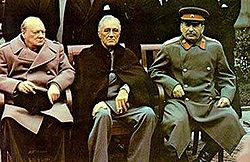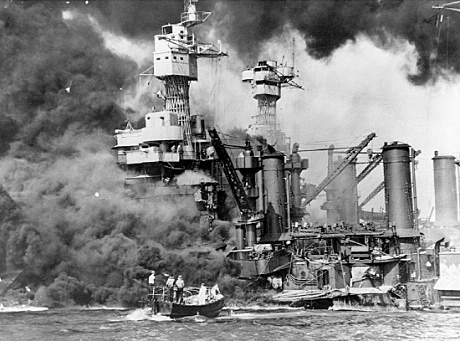When I was growing up, I learned the standard Pearl Harbor attack story. The peaceful United States was minding its own business and staying out of the war raging in Europe when Japan suddenly attacked Pearl Harbor without any provocation. The Japanese were motivated simply by imperialist plans for conquest, we were assured.
I loved military history back then, and the war in the Pacific during World War II was my favorite. (If you ever want me to bore you with a detailed account of the Battle of Midway, I’ll be happy to do so, because it’s my favorite battle.) I have tremendous admiration for the people who fought that war and who sacrificed greatly in order to win it. Unfortunately, I can’t say the same thing about the political leaders whose actions led to the war.
When I was 12, I learned Franklin Roosevelt’s rousing speech on Dec. 8, 1941, asking Congress to declare war on Japan. (I can still do large parts of it, and I’m sure it’s funny to hear me emulate FDR’s accent.) I believed that Roosevelt was a great wartime leader.
Over the years, there have been suggestions — sometimes closer to conspiracy theories — that FDR knew of the attack and deliberately didn’t warn American military and naval officials, because he wanted the attack to bring the United States into the war. I don’t think there’s any serious debate that Roosevelt wanted the United States in the war against Germany, and it seems that there might be credible evidence that he provoked Germany’s ally into a confrontation because he knew it would force the American people to support a war — something they hadn’t been willing to do up until then.
John Denson has an interesting article/book review looking at this point of view. He’s reviewing “The Pearl Harbor Myth: Rethinking the Unthinkable.” I haven’t read the book, but I’d at least recommend the article, because it lays out a credible case for the notion that FDR wanted some reason to go to war, but he simply wasn’t expecting the Japanese attack to Pearl Harbor to be as effective as it was.
 Roosevelt worked with Britain’s Winston Churchill and the Soviet Union’s Joseph Stalin, right, in pursuing the war against Germany, Japan and Italy. How much of his pre-war actions were motivated by his desire to join those men in pursuing a war that he believed should be fought?
Roosevelt worked with Britain’s Winston Churchill and the Soviet Union’s Joseph Stalin, right, in pursuing the war against Germany, Japan and Italy. How much of his pre-war actions were motivated by his desire to join those men in pursuing a war that he believed should be fought?
I can’t say what the truth is. I doubt anyone will ever know the complete facts at this point. Almost everyone involved is now dead, so whatever secrets they had were taken to their graves. We won the war and our historians wrote accounts that flatter us and that are in line with our national myths. To question those myths is to be “unpatriotic.”
But I do question the myths. The very fact that I suspect Roosevelt was willing to sacrifice lives of innocent people in exchange for pursuing his political objectives in the big pictures tells you what I assume to be true of the character of political leaders. After working in politics for more than 20 years, I honestly don’t see any other conclusion to come to. There are a few politicians I’ve known along the way who I don’t think are cold-blooded enough to do something like that, but very few.
Why do so many people willingly trust their futures to this kind of person? There was a time when those men had my trust. They don’t anymore.
For the many people who died 70 years ago today at Pearl Harbor, I doubt those people would trust their leaders, either, if they knew all the facts. I admire those men who fought and died believing they were fighting for their homes and families. I don’t admire the men who used them as political pawns.

 Nobody has the right to a position in your life which you don’t want
Nobody has the right to a position in your life which you don’t want Cycles keep us circling through life until we get something right
Cycles keep us circling through life until we get something right Trump’s rabid defenders selling their souls for a narcissistic liar
Trump’s rabid defenders selling their souls for a narcissistic liar